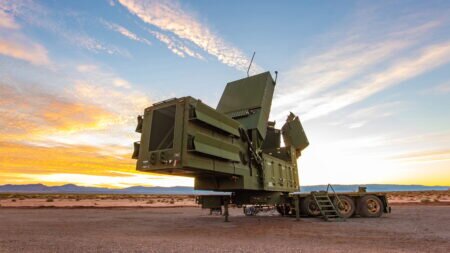Raytheon Intelligence & Space announced on May 25th that the company will create a cross-lingual information extraction and retrieval system that learns and improves with user’s activity to reduce workload on Intelligence Community analysts.
New system capabilities:
- Extracts mission-relevant semantic information from text in many languages
- Enables English-only speakers to search vast amounts of foreign language data
- Learns from user’s activity to perform personalized extraction and searches
Raytheon Intelligence & Space, a Raytheon Technologies business, is leading the IARPA Better Extraction from Text Toward Enhanced Retrieval, or BETTER, program. The end-to-end system, Cross-Lingual Extraction for Versatile and Effective Retrieval, CLEVER, will improve the information discovery cycle and customize English-speaker search results based on user needs and the semantic context.
Given an English-only query supplied by the user, the CLEVER system will retrieve relevant documents from vast amounts of foreign language text, and extract mission-relevant information such as events in the form of who did what to whom when and where.
“Analysts are bombarded with massive amounts of information daily; they do not have time to read lengthy content while facing rapidly changing information needs,” said Bonan Min, a Raytheon BBN scientist. “Our system seamlessly learns from queries and then provides better and more meaningful results, without making analysts do more work.”
Leveraging Raytheon BBN’s expertise in machine learning and large language models, the team developed cross-lingual Information extraction and retrieval technologies. These technologies address on-demand, personalized information needs via human-in-the-loop active learning.
“Context is something intuitive. Humans consider context naturally. For non-native speakers understanding context across languages is critical to extract the appropriate semantic information. With machine learning and artificial intelligence, we’re able to deliver the semantic information and search results that today’s intelligence analysts need,” explained Min.
Work on the BETTER program is being conducted in Cambridge, Massachusetts.









